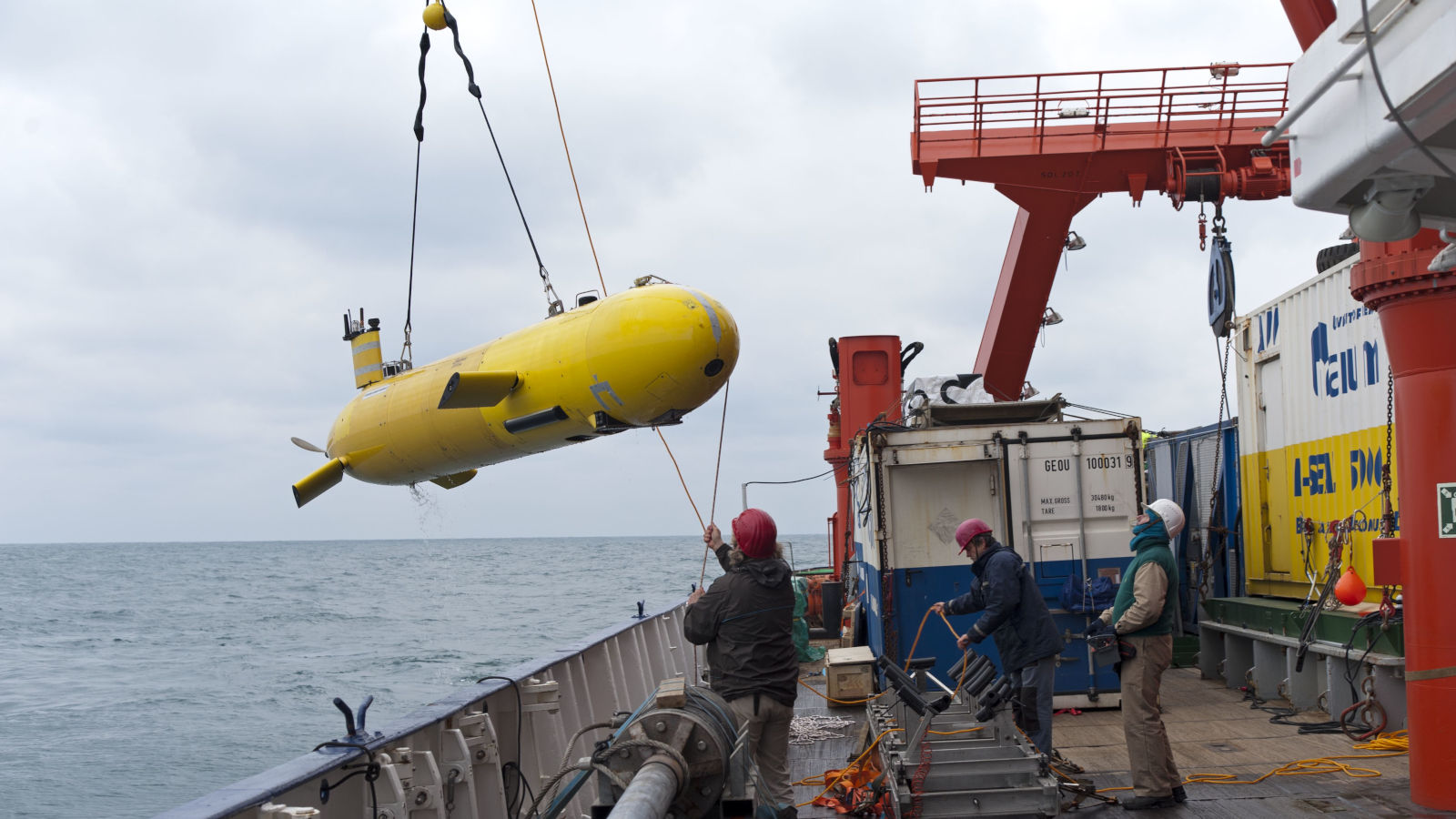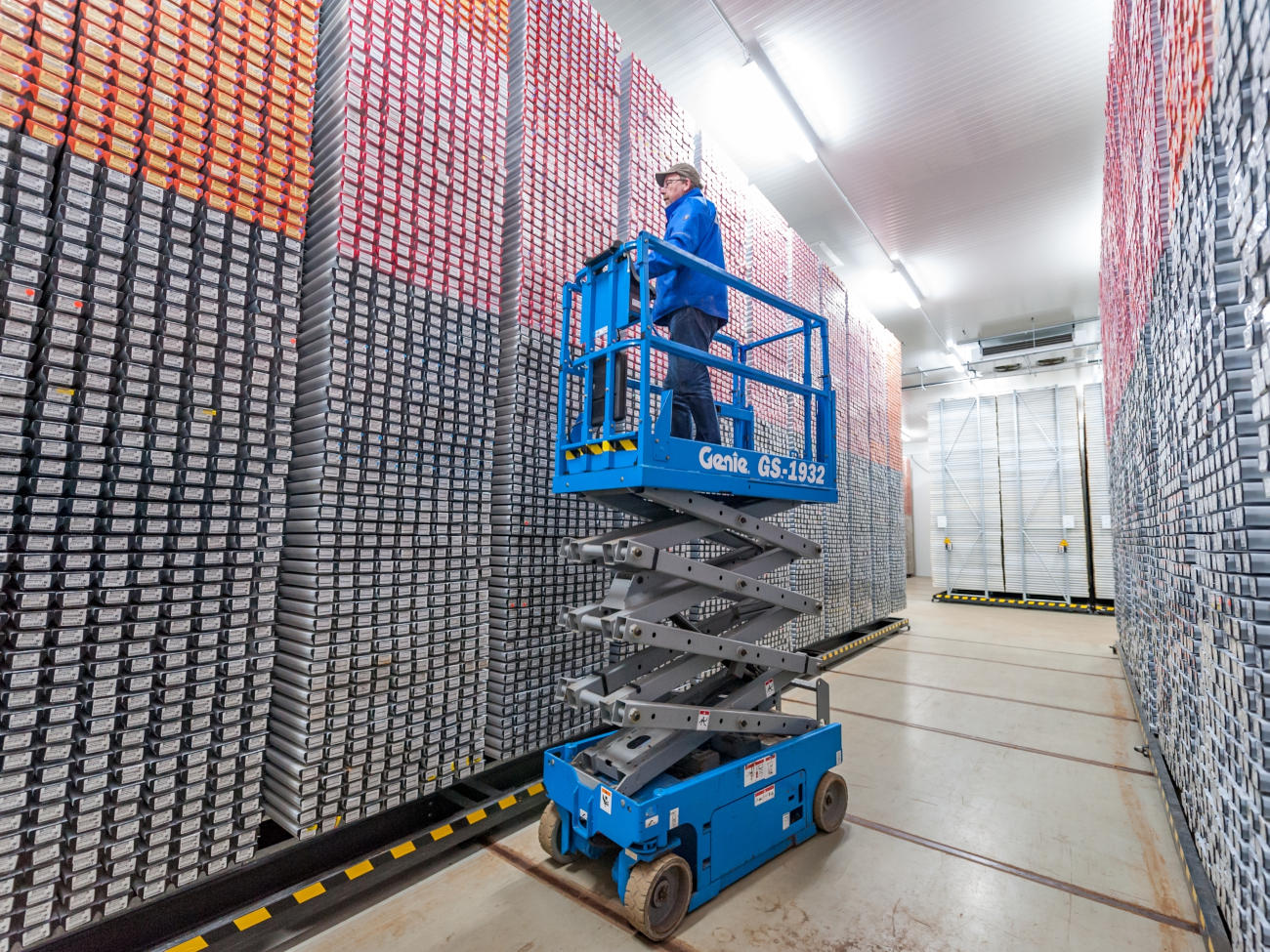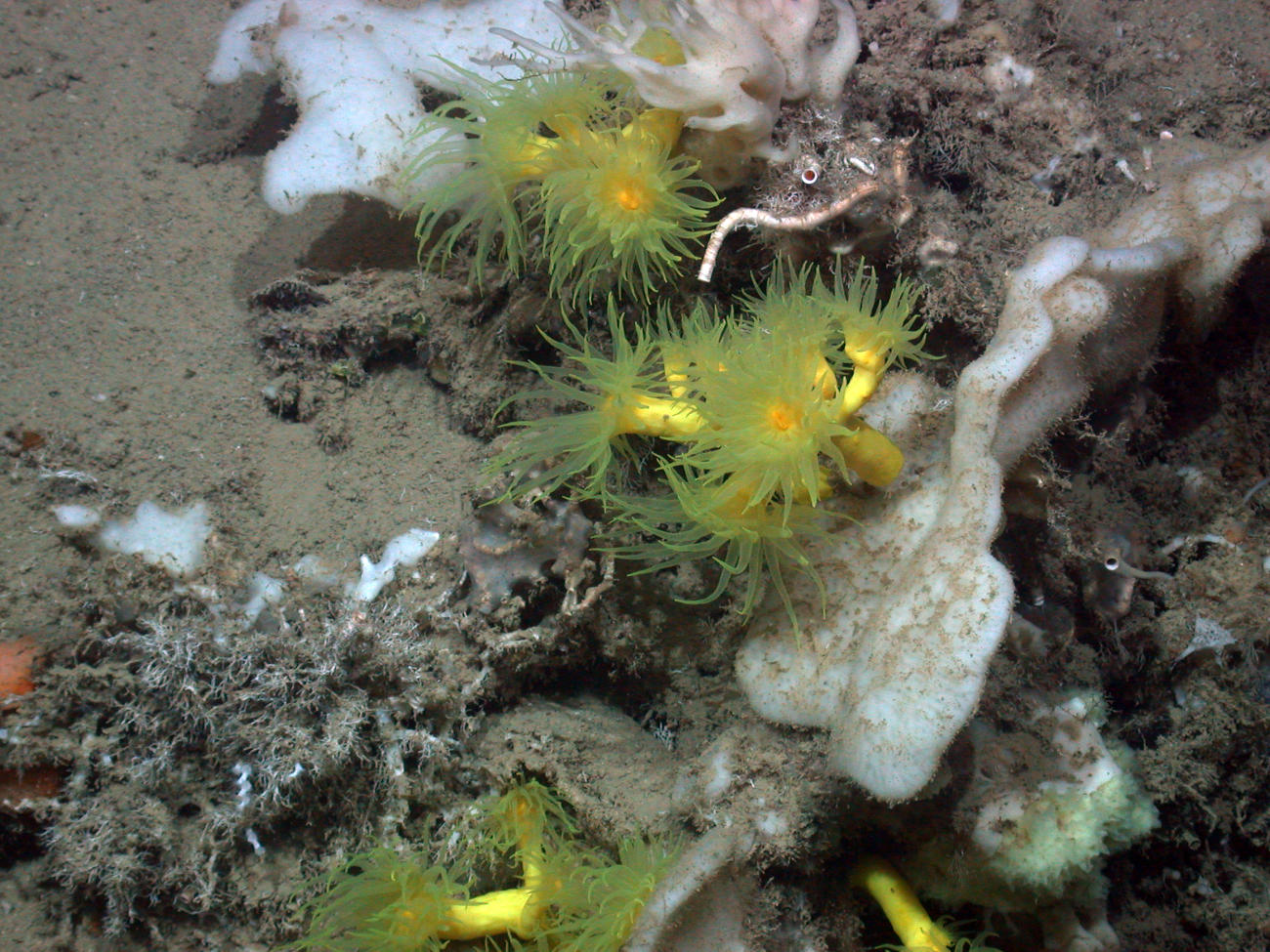
© MARUM – Zentrum für Marine Umweltwissenschaften der Universität Bremen / V. Diekamp
Have You Heard of… MARUM?
There is a great deal to be discovered on campus but what is the story behind it all? up2date. has collected the answers for all of you curious readers. Welcome to a slightly different tour of the campus!
The researchers from MARUM – Center for Marine Environmental Sciences at the University of Bremen on Leobener Straße are networked globally and are making an important contribution to climate research. With its Cluster of Excellence, the institute is one of the most significant marine research facilities worldwide.
The world’s oceans cover around 70 percent of the Earth’s surface. They are a complex system that is largely undiscovered. Those who wish to know what diverse role the oceans play in the Earth system cannot avoid MARUM – Center for Marine Environmental Sciences at the University of Bremen. International researchers carry out pioneering work there and with highly modern deep-sea robots and drilling equipment, they investigate the climate history of our Earth and the multifaceted biological and geochemical processes on and in the sea floor. The sea floor is much like an archive that has recorded the environmental conditions of past times and that is why it is possible to find out a great deal about how the climate changed over time and which factors played a role. How the sensitive ecosystems in the deep sea react to the changing environment and rising temperatures is also one of the focal points in research. An Excellence Cluster has been funded at MARUM since 2007. The current cluster is entitled “The Ocean Floor – Earth’s Uncharted Interface.”

© MARUM – Zentrum für Marine Umweltwissenschaften der Universität Bremen / V. Diekamp
250,000 Drilling Core Segments from 90 Expeditions
The core repository at MARUM is particularly significant: It holds more than 250,000 drilling core segments from around 90 expeditions to the Atlantic and Arctic Oceans and the Mediterranean and Black Seas. If one were to place the individual samples next to each other, they would have a length of 158 kilometres. Outside of Bremen, there are similar repositories in Kochi (Japan) and Texas (USA). All three belong to the International Ocean Discovery Program (IODP). The program is a network that includes Japan, the USA, and a European consortium. With the help of drilling cores, the network investigates geological processes, life in the deep biosphere, and the Earth’s climate history. Researchers from across the world come to MARUM in order to carry out research on the cores.

© MARUM – Zentrum für Marine Umweltwissenschaften der Universität Bremen / V. Diekamp
Regional and European Cooperations
The researchers at MARUM work closely together with partner institutes in the surrounding region. These institutes include the University of Oldenburg, the Jacobs University Bremen, Alfred Wegener Institute - Helmholtz Centre for Polar and Marine Research, Max Planck Institute for Marine Microbiology, Senckenberg am Meer, and the Leibniz Centre for Tropical Marine Research.
Additionally, MARUM also maintains close cooperations with institutes and partners in Europe. The training network SLATE (Submarine Landslides and their Impact on European Continental Margins) is coordinated at MARUM. The network, in which doctoral students work on issues concerning submarine landslides, is funded as part of the Marie Skłodowska-Curie Actions of the European Commission. Universities, research institutes, and companies from a total of seven European countries are involved.
Further examples of scientific collaborations on a European level are Mission Atlantic and iAtlantic where the focus lies on ecosystems and environmental monitoring in the Atlantic.
Further Information:
Website MARUM – Center for Marine Environmental Sciences University of Bremen